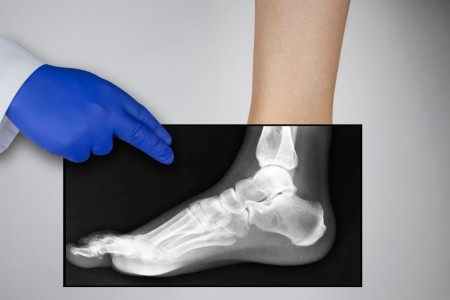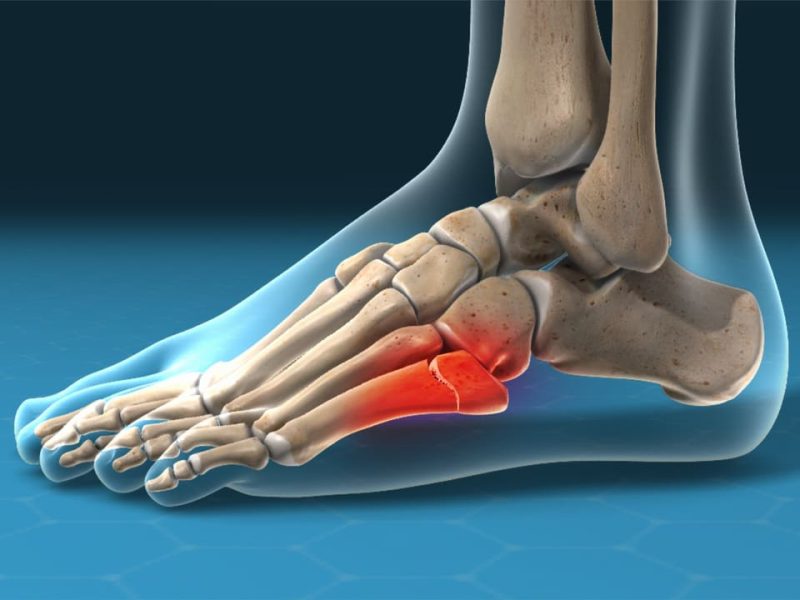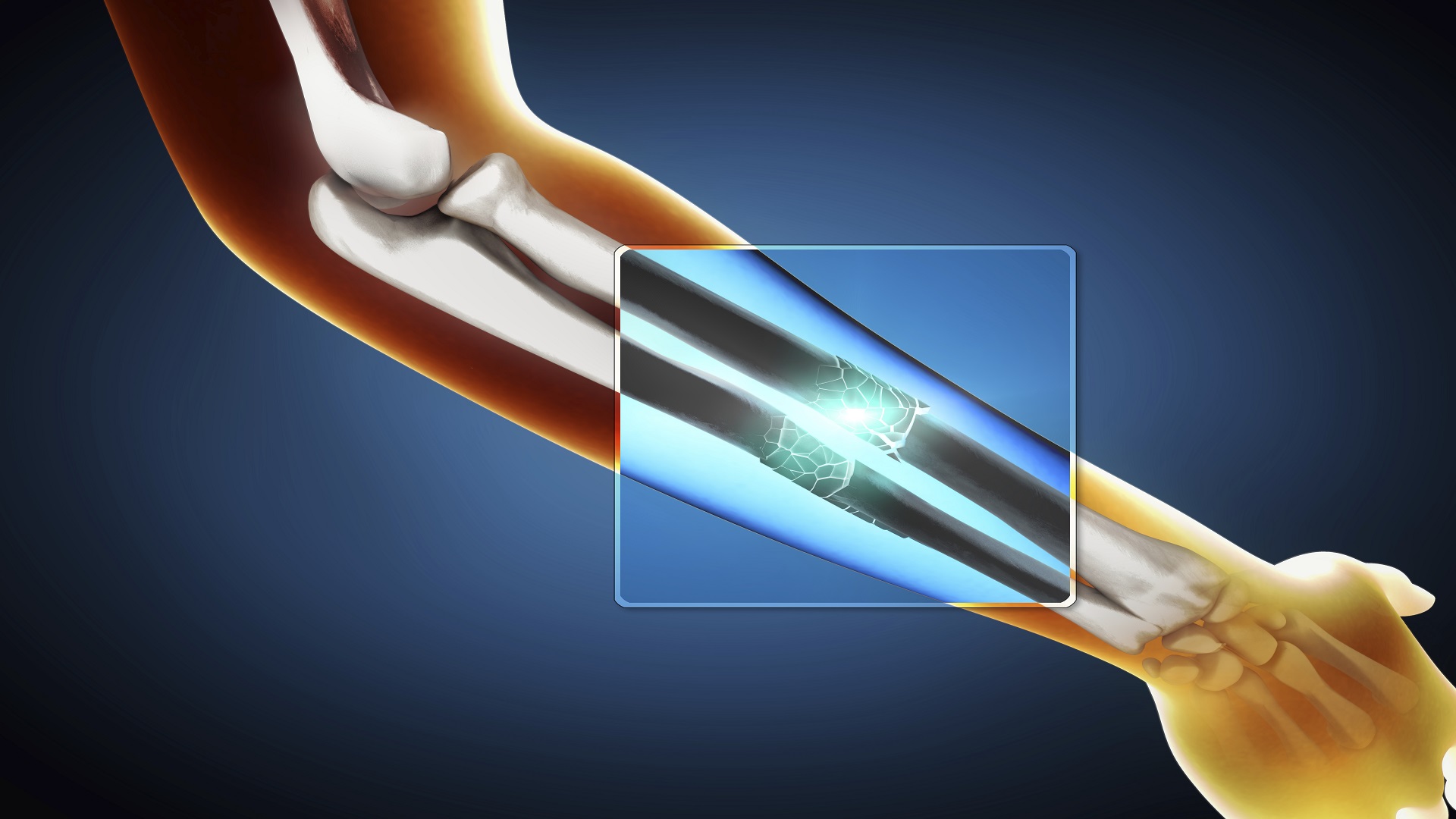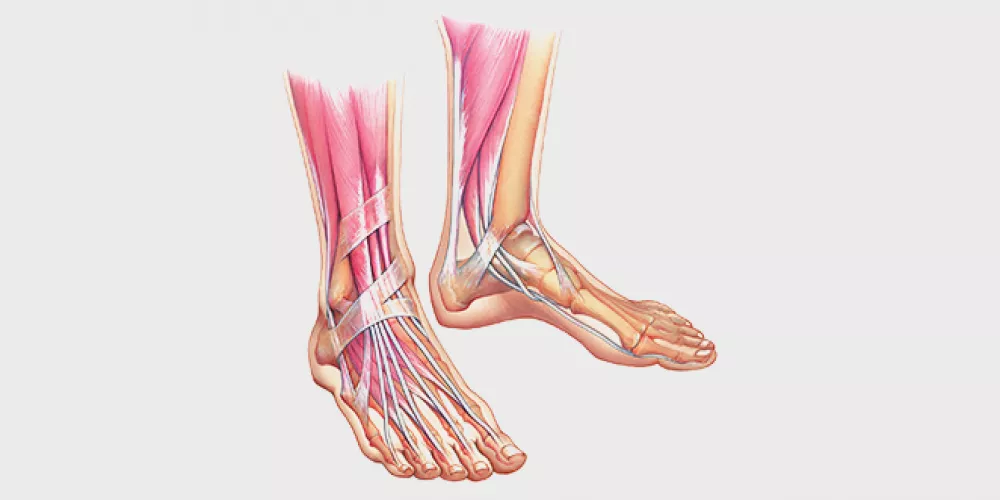Arthritis Injections and Can Vitamin D Treat Arthritis?
Arthritis Injections
Arthritis injections have become one of the most important treatments used in managing chronic joint inflammation. These injections offer an effective way to alleviate pain, reduce swelling, enhance joint mobility, and improve overall body function. In this article, we will highlight some common types of arthritis injections, their benefits, and their impact on the body.
- Cortisone Injections: Cortisone injections are one of the most commonly used types of arthritis injections. These injections contain cortisone, a type of anti-inflammatory steroid. Cortisone injections work to relieve pain and reduce swelling in affected joints while promoting movement and functional improvement in the body. However, it’s important to use cortisone injections cautiously in cases of chronic joint inflammation, as they may have potential side effects such as elevated blood pressure, increased blood sugar levels, and weight gain.
- Hyaluronic Acid Injections: Hyaluronic acid injections are used to treat chronic joint inflammation, especially in cases of osteoarthritis. These injections contain hyaluronic acid, a natural viscous substance found in joints. Hyaluronic acid injections work to enhance joint lubrication, strengthen cartilage membrane, reduce pain, and increase the joint’s shock absorption and friction resistance. It’s essential to administer hyaluronic acid injections under the supervision of a specialist and in the appropriate dosage.
- Methotrexate Injections: Methotrexate injections are used to treat rheumatoid arthritis, a common type of arthritis. These injections work by suppressing the autoimmune activity that causes joint inflammation. Methotrexate injections are considered an effective treatment for controlling the symptoms of rheumatoid arthritis and slowing down the progression of the disease. However, these injections should be used under the guidance of a physician and in the appropriate dosage.
- Platelet-Rich Plasma (PRP) Injections: Platelet-rich plasma (PRP) injections have become popular in arthritis treatment in recent years. These injections contain blood-clotting components and inflammation-regulating substances found in plasma. Some doctors believe that PRP injections can help rejuvenate cells and promote the repair of damaged joints. Some studies have suggested that PRP injections may provide temporary relief from pain and swelling in arthritis. However, these injections are still subject to further experiments and research to determine their full benefits and potential side effects.
In addition to the mentioned types, there are other injections used in arthritis treatment, such as stem cell injections and ozone injections. Arthritis injection technology continues to evolve, and there may be more innovative and effective treatments in the future.
In general, arthritis injections should be administered under the supervision of a specialized physician who can evaluate your condition and determine the most suitable treatment for you. Some patients may require multiple sessions to achieve the best results, while others may experience immediate improvement after a single session.
What Is the Best Medication for Treating Arthritis?
Arthritis is a common health issue affecting many people, and finding the best ways to treat it is crucial given its impact on the lives of those affected. While there are various treatments available, it’s important to consult with a specialized physician to determine the appropriate treatment plan for each individual case. Nevertheless, there are several widely prescribed medications that may be beneficial in treating arthritis based on previous experiences.
Here are some commonly prescribed medications used in arthritis treatment:
- Non-Steroidal Anti-Inflammatory Drugs (NSAIDs): NSAIDs are used to treat joint inflammation by reducing swelling and relieving pain. They improve joint mobility as well. Examples of NSAIDs include ibuprofen and naproxen.
- Corticosteroids: Corticosteroids are potent anti-inflammatory treatments for rheumatoid arthritis. They work to reduce swelling, pain, and joint inflammation. Examples of these medications include prednisone and dexamethasone.
- Disease-Modifying Antirheumatic Drugs (DMARDs): DMARDs are essential in treating rheumatoid arthritis. These drugs work by inhibiting the activity of the immune system, which is a cause of joint inflammation. Examples of DMARDs include methotrexate and azathioprine.
- Antibiotics: In some cases, joint inflammation can lead to an infection within the joint. In such instances, a doctor may prescribe antibiotics to treat the infection.
- Tumor Necrosis Factor (TNF) Inhibitors: These drugs are typically used in cases of chronic rheumatoid arthritis that have not responded to other treatments. They work to prevent and inhibit tumor necrosis factor, which is responsible for joint inflammation.
In addition to the mentioned medications, doctors may also use other treatments like fish oil supplements and experimental therapies for arthritis. However, experts note that research is still ongoing to determine the effectiveness of these alternative treatments. Therefore, they should be used with caution and under the supervision of a physician.
Please note that the prescribed medications and necessary dosages should be determined on an individual basis. It is always advisable to consult with a doctor before taking any type of medication for arthritis.
What Are Bone Injections?
Bone injections are a medical procedure used to treat certain issues affecting bones and surrounding tissues. These injections involve introducing a solution or therapeutic substance directly into the bone to stimulate healing and healthy bone tissue regeneration. This procedure is often used to treat conditions like osteoporosis.
Bone injections come in various types, and the appropriate method is chosen based on the nature of the existing problem:
Bone Injections: Bone injections involve introducing highly regenerative stem cells directly into the site of bone injury. This method is used in treating fractures, promoting their healing, and rebuilding damaged bone tissues.
Platelet-Rich Plasma (PRP) Injections: In this procedure, a small sample of the patient’s blood is collected, and the plasma is separated and enriched with blood platelets containing growth factors. These platelets are then injected into the affected bone area to enhance the regeneration and healing process.
Mineral Injections: These injections are used to deliver minerals such as hydroxyapatite, which is a fundamental substance in bone composition. These injections are used in treating osteoporosis and fractures.
Steroid Injections: Steroid injections are used to treat specific conditions like elevated bone cell activity, arthritis, and other bone-related inflammations. These injections enhance pain relief and reduce inflammation.
Bone injections are considered a safe and effective procedure for treating various bone issues. They should be performed under the supervision of a specialized physician and require a detailed discussion with the doctor to understand the qualifications and potentialities associated with the procedure. Some preparatory measures may also be necessary before undergoing these injections to ensure the patient’s safety.
In general, bone injections are a promising procedure for treating diseases and injuries affecting bones. This procedure helps accelerate the regeneration and healing process, improving bone quality overall. Bone injections are often administered after a thorough evaluation and diagnosis of the patient’s condition to choose the best available treatment options.
Feel free to consult your doctor for more information about bone injections and their appropriate use for the treatment you need.
What Is the Best Pain Reliever for Bone Pain?
Bone pain is a common health issue experienced by people of various ages. Such pain can result from various factors, including physical strain, arthritis, injuries, and chronic conditions like rheumatoid arthritis and osteoporosis. When dealing with bone pain, it may be necessary to use pain relievers to alleviate the discomfort and improve the quality of life.
When choosing a pain reliever for bone pain, several factors should be taken into consideration, such as the severity of the pain, personal tolerance for medications, and any other conditions the patient may have. There are several types of pain relievers that can be used to alleviate bone pain, and some of the best options include:
Non-Steroidal Anti-Inflammatory Drugs (NSAIDs): Non-steroidal anti-inflammatory drugs are among the most common medications for relieving bone pain. These drugs work by reducing swelling, inflammation, and pain. Examples of these drugs include ibuprofen, aspirin, and naproxen. It is advisable to consult a doctor before using any of these medications, as they may have side effects on the stomach, kidneys, and other organs.
Herbal Remedies: Some traditional herbal remedies are used as pain relievers for bone pain. These herbs include ginger, willow bark, turmeric, and others. Individuals may need to consult a bone specialist before using these remedies, as some of them may interact with other medications the patient is taking.
Strong Pain Medications: Some individuals may require stronger pain relievers to manage severe bone pain. These medications include opioids like morphine, oxycodone, and hydrocodone. These drugs should be used under the supervision of a specialized physician, as they may cause serious side effects and addiction.
Topical Pain Relievers: Using topical pain relievers can be beneficial for temporarily alleviating bone pain. These include creams, gels, and oils that can be applied to the skin in the painful area. They can provide temporary pain relief and help reduce inflammation.
It’s essential to consult with a healthcare provider when choosing a pain reliever for bone pain, as they can provide guidance on the most suitable option based on the individual’s specific condition and medical history.
There is no one-size-fits-all pain reliever as it depends on the individual’s condition and the severity of their pain. It is recommended to focus on preventing bone and muscle pain through appropriate exercise, following a healthy diet, and avoiding any factors that increase the risk of pain.
Ultimately, before taking any bone pain reliever, it is advisable to consult a doctor or specialized pharmacist for proper guidance based on your health condition and the medications you regularly take.
What Is the Name of the Rheumatoid Injection?
If you’re dealing with rheumatoid arthritis, you may have heard of the “rheumatoid injection.” This injection is considered one of the available treatment options for controlling disease symptoms, reducing inflammation, and relieving pain. But have you ever wondered what this type of injection is called? In this article, we will reveal the name of the rheumatoid injection and how its use can improve your quality of life.
Name of the Rheumatoid Injection:
The known name of the rheumatoid injection is “Triamcinolone Hexacetonide.” It is a type of potent steroid used to reduce arthritis inflammation and alleviate pain. Triamcinolone Hexacetonide is a strong anti-inflammatory agent that works by inhibiting the immune system’s activity in the body, reducing irritation, swelling, and pain associated with rheumatoid arthritis.
Benefits of the Rheumatoid Injection:
The rheumatoid injection, Triamcinolone Hexacetonide, is one of the essential treatment options for rheumatoid arthritis, and it comes with several benefits, including:
- Improved Overall Condition: The rheumatoid injection helps in relieving symptoms associated with rheumatoid arthritis, such as pain, swelling, joint stiffness, and spasms.
- Reduced Swelling: Hexacetonide enhances tissue healing and reduces swelling associated with arthritis.
- Long-Lasting Effect: The benefits of the rheumatoid injection take some time to manifest, but once they do, they can last for several weeks or even months.
- Increased Mobility: Due to its anti-inflammatory effect, the rheumatoid injection can contribute to increased joint flexibility and improved patient mobility.
- Suitable for Various Stages: The rheumatoid injection can be used at various stages of rheumatoid arthritis, from mild symptoms to severe and complicated cases.
Important Note:
Despite its remarkable benefits, it should be noted that using the rheumatoid injection is not without risks and side effects. Its use may increase the risk of certain negative effects, such as an increased risk of lymphoma, especially non-Hodgkin’s lymphoma. Patients should take this into consideration and consult with their physicians before starting to use the rheumatoid injection.
The rheumatoid injection, known as Triamcinolone Hexacetonide, is a common and effective option for treating rheumatoid arthritis. However, the decision regarding the use of this injection should be based on a comprehensive assessment of the patients’ conditions and the guidance of the treating physician. Be sure to consult with your doctor to determine whether the rheumatoid injection is the right choice for you and how to use it safely and effectively.
Can Penicillin Injections Treat Arthritis?
When someone is suffering from arthritis, they look for ways to relieve pain and improve their condition. Penicillin injections are considered one of the potential treatments for arthritis, but does this treatment actually work? In this article, we will take a look at the benefits of penicillin injections in treating arthritis.
Understanding Arthritis: Arthritis begins with inflammation and swelling in the joints, accompanied by feelings of pain, stiffness, and difficulty in movement. Examples of common types of arthritis include rheumatoid arthritis and gout.
Arthritis Treatments: Arthritis treatment methods include non-steroidal anti-inflammatory drugs (NSAIDs), disease-modifying anti-rheumatic drugs (DMARDs), muscle relaxants, and surgery in some severe cases.
What Is Penicillin? Penicillin is a type of antibiotic used to treat various bacterial infections in the body. Penicillin works by killing or inhibiting the growth of bacteria.
Mechanism of Penicillin Injections: Penicillin injections work by delivering a high dose of the antibiotic directly into the patient’s body. This is typically done through intramuscular or intravenous injection. Once penicillin enters the bloodstream, the antibiotic penetrates the affected joints and attacks the bacteria present in them.
Benefits of Penicillin Injections in Treating Arthritis:
- Bacteria Elimination: Thanks to its mechanism of action, penicillin injections can get rid of the bacteria causing arthritis. This is essential for improving joint conditions and reducing pain and swelling.
- Symptom Improvement: When bacteria are eliminated, inflammation subsides, and the severity of pain and swelling in the affected joints decreases. Penicillin injections can, therefore, improve joint mobility and endurance.
- Preventing Complications: In the absence of effective treatment, bacterial infections can worsen and cause more severe health problems. By using penicillin injections, these complications can be avoided, and joint health can be maintained.
Side Effects of Penicillin Injections: Like other medications, penicillin injections may cause some side effects. Examples of these side effects include gastrointestinal disturbances, allergies, and headaches. Patients should consult their treating physician about any potential side effects and treatment expectations.
Consulting a Physician: People suffering from arthritis should consult a specialized physician before trying any treatment, including penicillin injections. Doctors can evaluate the patient’s condition, and based on symptoms and diagnosis, they can determine whether penicillin injections are the appropriate option for arthritis treatment.
In Conclusion: Penicillin injections are a potential treatment option for arthritis. These treatments are used to eliminate bacteria that cause arthritis and improve associated symptoms. However, individuals considering this treatment should consult a specialized physician before making a final decision.
Can Vitamin D Treat Arthritis?
Arthritis is a medical condition that causes pain and swelling in the body’s joints. Some research suggests a link between a deficiency in vitamin D and rheumatoid arthritis, a chronic inflammatory condition that affects the joints and causes difficulty in movement and pain.
However, there is still conflicting opinions among experts regarding the effectiveness of vitamin D in treating joint pain. In cases of rheumatoid arthritis, the immune system attacks the joints, leading to their damage. Therefore, using vitamin D supplements alone may not be sufficient to treat this condition.
The well-established role of vitamin D in bone health is recognized. Vitamin D plays a crucial role in calcium and phosphorus absorption in the body, promoting bone growth and strength. This makes vitamin D potentially beneficial for people suffering from arthritis, as they are at risk of osteoporosis and higher fracture rates.
Furthermore, some studies suggest that vitamin D may have anti-inflammatory effects. For instance, adequate levels of vitamin D might help reduce joint inflammation and improve symptoms. However, these studies are still in the early stages and require further research and confirmation.
Vitamin D supplements are generally safe when used properly and according to recommended dosage guidelines. However, attention should be paid to any potential side effects that may result from excessive intake of this supplement. Possible side effects may include nausea, vomiting, headaches, and increased levels of calcium in the body.
It may be advisable for those suffering from rheumatoid arthritis to consult a specialist doctor before taking vitamin D supplements. The doctor can assess the patient’s individual condition and determine whether vitamin D supplements are the appropriate step for treating joint pain.
In conclusion, vitamin D is essential for bone and muscle health and may have anti-inflammatory effects. While evidence regarding the effectiveness of vitamin D in treating joint pain is still limited, it may be useful in preventing osteoporosis. Therefore, it is recommended to consult a doctor before taking vitamin D supplements for treating joint pain and to determine the necessary recommendations for each individual’s condition.





















